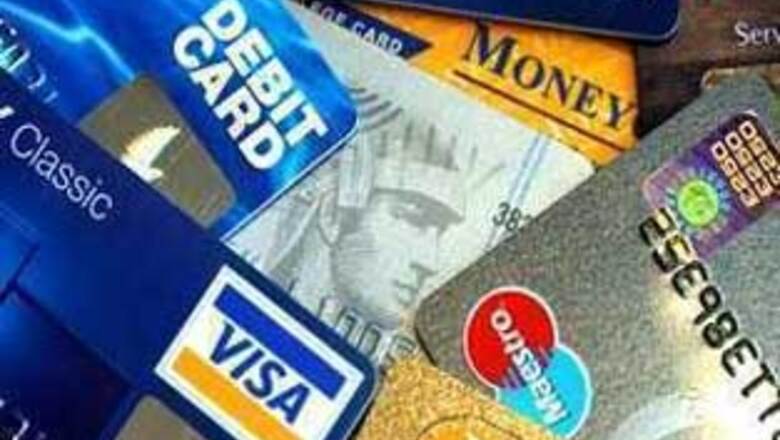
views
Being a traffic cop is quite a lucrative profession these days. Cops seem to be pretty adept at giving you the most obscure reasons to fine you. You no longer need to get into an accident to get their attention.
Right from using cell phones (on hands free), changing lanes (after using an indicator), running a light (which was orange, not red), they seem to be having a party making money off you.
It is a lot like credit card companies. Any excuse to make money will do. Here's a heads-up on the many ways credit card companies could make money off you.
You don't pay the minimum amount due
They are just waiting for you to forget. Even a day's delay lands you with a late payment fee. This fee varies from bank to bank. If you do not pay for two consecutive months, you become a defaulter.
Collection strategy then varies depending on your risk score, which is calculated from the amount outstanding, past record, individual profile, profession. And then, further transactions are blocked.
You revolve your balance
Credit card companies give you a tempting option to pay a minimum prescribed amount and carry forward the rest to the next billing period. Don't be fooled.
You pay a hefty interest (2.45 per cent to 2.99 per cent every month!), on the outstanding amount. When you carry a balance from month to month, there is no grace period on new purchases with most cards.
PAGE_BREAK
Your payment cheque bounces
If you make a slight error on your cheque and it bounces, they pounce again with a fee for dishonoured cheques. If you go beyond the due date, you become a delinquent case and your risk profile shoots up.
Also, all charges will be applicable. This includes a fee for a bounced cheque, late payment fee and monthly interest on outstanding amount.
You cross your credit limit
This is chargeable. Your credit limit is the maximum amount you can spend using your credit card as dictated by your income profile.
Should you decide to spend more, the banks will not block further transactions. Instead, they let you spend and then charge you perhaps, as much as five per cent on the exceeded amount.
You transfer your balance from other cards
Here comes another. They may tempt you to transfer your balance with no or very low interest. Fact is, it holds true only for a stipulated period of about three months. Beyond this, you start paying the normal interest. So if you have transferred your balance, pay off the dues within the stipulated time.
You withdraw cash
This is a big one. Apart from paying the regular interest of 2.95 per cent, you will also have to pay a one-time fee of two per cent to 2.5 per cent if you make a cash advance.
The cash advance fee is higher if you withdraw from an ATM that doesn't belong to the bank whose credit card you hold. Remember, when you withdraw cash, you start paying interest from there on. You
don't get a free credit period for this.
PAGE_BREAK
You forget to pay your annual charges
They strike at the end, too. If you decide not to use your credit card further and you don't pay the annual charges, you are in for trouble. Remember, you need to get in touch with the bank and intimate them that you don't want the card any further. Otherwise, you will unnecessarily have to pay the annual fee and a penalty, in case you cross the due date.
Take a look at the table below:
Now you know why traffic cops and credit card helplines are always busy. They spend time thinking of new, creative ways to make you part with your money. So, spend and drive carefully.



















Comments
0 comment